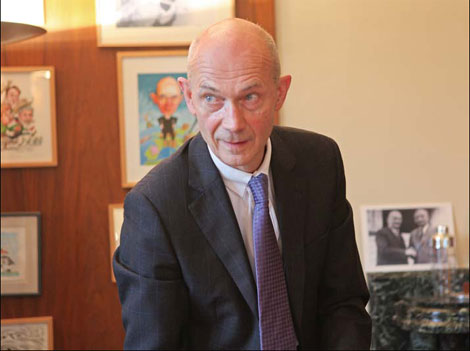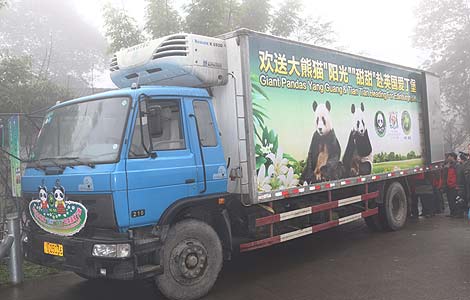A journey worth its weight
Updated: 2011-12-09 08:21
By Fu Jing (China Daily)
|
|||||||||
|
Pascal Lamy, director-general of the WTO, says China's entry into the WTO has transformed the country and the rest of the world. [Fu Jing / China Daily] |
Pascal Lamy has had an upclose view of China's WTO role
Perhaps Pascal Lamy is better qualified than anyone else when it comes to commenting on China and its role in the World Trade Organization over the past 10 years.
For most of the past year, Lamy, the organization's director-general, has been trumpeting the China WTO success story. It began at the World Economic Forum in Davos, Switzerland, in late January and will continue into the celebration in Beijing on Dec 10 organized by China - and no doubt beyond.
"It is a story of success (that) still unfolds," Lamy said in an exclusive interview with China Daily shortly before leaving for Beijing to participate in the Saturday celebration.
"It has transformed China and the rest of the world," Lamy said in his office in Geneva.
He gave a quick rundown of the milestones since 2001, the year of China's accession to the organization, after painstaking negotiations that involved compromises and risks.
China surpassed Japan, becoming the world's second-biggest economy last year and it has become the world's biggest exporter and second-biggest importer. And China's trade and investment have helped create millions of jobs in the rest of the world over the past 10 years. Built upon the success, the trade deficit will be kept stable in the coming five years, and China's imports will surpass $10 trillion (7.46 trillion euros).
Lamy became director-general in 2005 after leaving his job at the European Commission. He was appointed to a second four-year term as WTO head in 2009.
China's entry, he said, had brought changes either as part of reform in the country or the penetration of Chinese trade into other countries. Some would be happy with that and others would not, he said. "These are (the) normal consequences (of) trade opening."
What matters most, he said, is that when China entered the organization it wanted to continue to pursue reform and to widen the country's opening to the world.
China had paid a price for that, he said, but it had improved the rule of law, efficiency, transparency and market access. "Of course, this meant a string of reforms in China after its entry."
China continued on the reform path not because of its joining the WTO, he said. Rather, it joined the WTO because it needed reform and further opening up.
The decision about reforms at that time in China was taken by the country's leadership and as a consequence of China joining the WTO to benefit from what the organization brings to its members, which is implementing rules-based policies against protectionism.
"If we look at what has happened since (China's accession), that has happened as a result of China's growth in exports," Lamy said. "It has also resulted in China's increasing imports, which has benefited the rest of the world."












